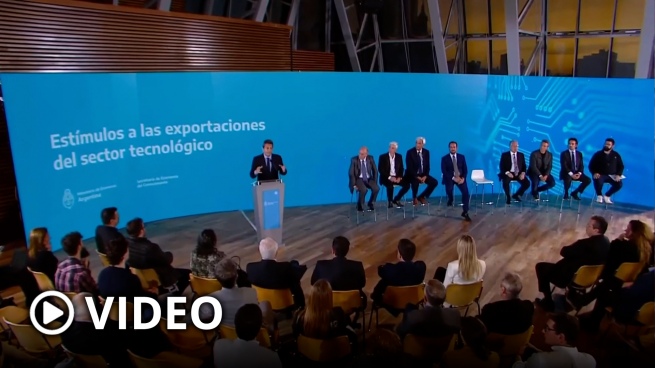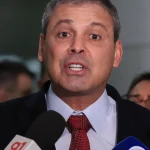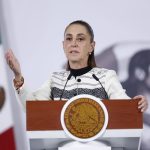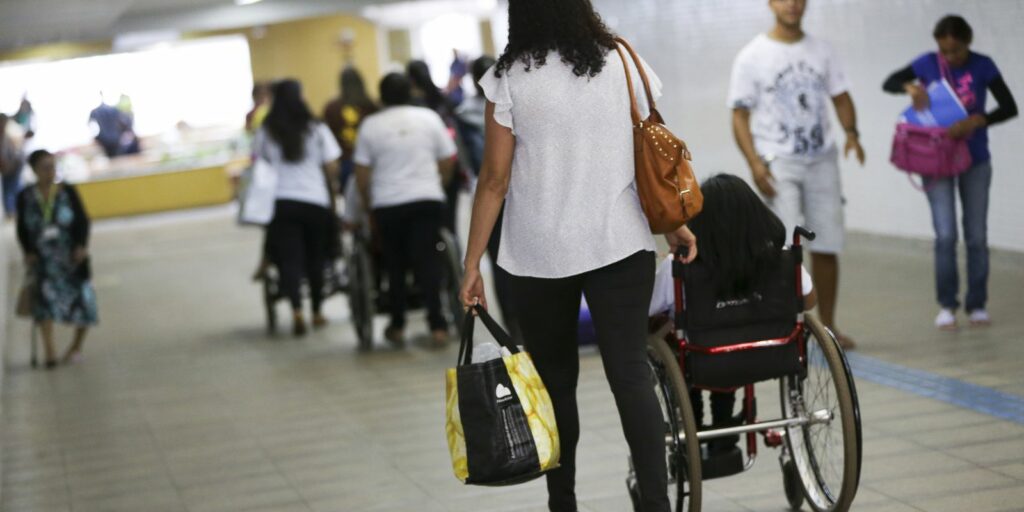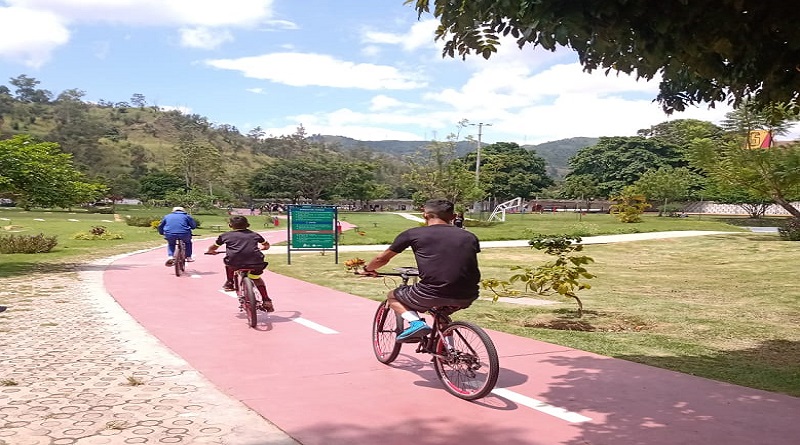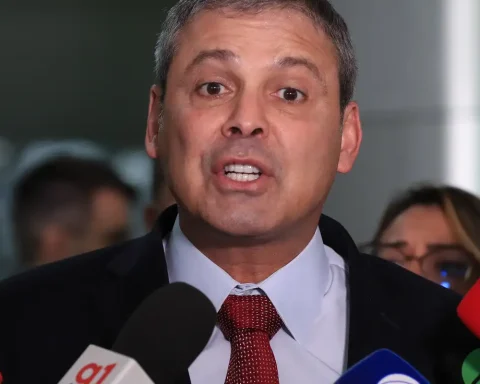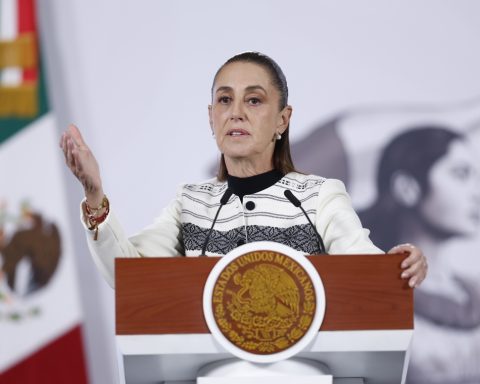The Minister of Economy, Serge Massaannounced this Monday the new regime of Promotion of Investments and Exports of the Knowledge Economy whose benefits for companies in the sector will allow them to reach, in 2023, some 10,000 million dollars in foreign currency income, from sales of services abroad, which would consolidate it as the third largest export complex in Argentina.
The new regime, in the first instance, will exempt companies in the sector that make investments of more than US$ 3 million from the obligation to pay an amount equivalent to 20% in the Single Free Exchange Marketwhen it comes to the establishment of new businesses or ventures.
The same rule also provides that 30% of the incremental exports can be used for payment of wages in a dependency relationshipwith the incentive that both benefits will be cumulative.
This is added to the fact that companies that have not used the tax credit bonus -which was increased by 200% in the Budget 2023– They can transfer it to other firms for a single time, so that the entire budget allocated to improving the competitiveness of companies can be used.
During the presentation, Massa identified the Knowledge Economy as “the most important export complex in terms of relative weight in the trade balance”, for which the measures announced this Monday they will contribute to “the sector exporting US$10,000 million in 2023 and for thousands of Argentines to join the labor market based on these initiatives.”
“We aspire to be the first exporters of knowledge in the region”assured Massa, while pointing out the objective of “multiplying by three the companies that have access to tax benefits” and that with the increase in foreign exchange, companies can pay better wages that encourage the establishment of workers who can work in the sector so that “our young people can contribute the human capital transformed into dollars for Argentina”.
“We have the enormous opportunity to get out of the recurring discussion about the tightness of dollars”affirmed the minister, although he asked not to treat this issue as “a discussion about reserves”, but as an opportunity to “consolidate the knowledge economy as the third largest exporter complex in Argentina” and to promote the transformation of the country brand .
Massa presented the regime -which will be implemented through a DNU to be published in the next 48 hours in the Official bulletin– During a ceremony held at the Kirchner Cultural Center (CCK) this Monday afternoon, accompanied by the Secretary of Knowledge Economy, Ariel Sujarchuk; the president of Argencom, Sebastián Mocorrea; the head of the firm Accenture, Sergio Kaufman; and the president of the Chamber of the Argentine Software Industry, Sergio Candelo, among other directors of the sector.

Sujarchuk specified that the new regime “It is not a techno dollar, but a stimulus to the generation of work”since “it is a permanent measure that goes beyond the exchange rate gap.”
“We want to compete against the world and generate foreign exchange, but also quality employmentd. Argentina has to be known in the world for its talent,” said the secretary, while stressing that “the proposal is to generate a great accelerator that is not a measure but a specific program that is woven together with all the Ministry’s announcements and that they do to the conformation of a State policy”.
In this sense, he highlighted the value of the Argentina Program, with which progress is being made in the training of 70,000 programmers to supply a market that increasingly demands more work of this type.
At the beginning of the event, on behalf of the business sector, Kaufman highlighted that in 2021 the sector reached US$6.2 billion in exports and that in the last 12 months that figure increased to $7.4 billionmarking “important growth and commitment to generate results, exports, generate dollars but also formal employment.”
“It is a sector that has been super resilient to all crises. What must be rescued is that it is a country project, because on this issue there has been absolute consistency regardless of the government’s ideology,” Kaufman assured in statements to the press at the end of the announcements.
Beside @ArielSujarchuk and benchmarks in the sector, we announced measures to stimulate the growth of the activities of the Knowledge Economy, favoring the generation of foreign exchange and qualified employment in a key area for national development.#ArgentinaAdvance pic.twitter.com/1RPKsxYOZA
– Sergio Massa (@SergioMassa) October 3, 2022
The businessman added that “the most important issue is not that companies can earn money, but that people can be paid what they are worth. And many of these measures help to make salaries competitive worldwidel”.
According to data from the chamber of companies in the sector, Argencon, between 20 and 25% of exports do not enter through the foreign exchange market because they are from independent professionals who choose to get paid for their work through other means (accounts in abroad, Paypal, cryptocurrencies or others), with which they stop entering the country about 1,500 million dollars a year for this concept.
“Today we don’t grow anymore because we don’t get all the people we need because they are demanded from abroad. Because people choose to earn in the “blue” market or with dollar bills before being in the formal market, with all the benefits,” he concluded. .
Argentine law allows up to 20% of the salary to be paid in kind, so that percentage could be paid in dollars, although it could be more to the extent that the employee authorizes the employer to increase that percentage.
What measures are established by the new export promotion regime of the Knowledge Economy
The national government announced on Monday a set of measures to stimulate the growth of Knowledge Economy activities, among which 20% of the foreign currency that enters the country for investment projects aimed at exports is freely available, as well as 30% of the foreign currency resulting from the increase in sales abroad, to be used to pay salaries.
The measures benefit companies that work in the software, professional services, biotechnology, audiovisual, aerospace satellite, video game and nanotechnology sectors, among others, with the purpose of stimulating the generation of foreign exchange and qualified employment through direct investments in infrastructure, capital and working capital, intended for the start-up of new projects or the expansion of others that involve the development of activities in the sector.
Specifically, the “Regime for the Promotion of Investments for Exports of Activities of the Knowledge Economy” will be created, which includes the exception of the requirement of liquidation in the Free Exchange Market (MLC) of an amount equivalent to 20% of the currencies that enter by way of foreign direct investment in excess of 3 million dollars.
Companies can adhere to the new Regime until June 30, 2023 and have 24 months to carry out investments from the approval of the project,
extendable for up to another 2 years.
The benefit can be applied to: the payment of principal and interest on commercial or financial liabilities abroad; the payment of profits and dividends corresponding to closed and audited balances; to the repatriation of foreign currency of non-residents, or to the investments reached by the Regime.
The second benefit is aimed at companies registered and approved in the Knowledge Economy Promotion Regime (RPEC), so that they can access an amount of free availability of dollars, equivalent to 30% of the foreign currency that enters through incremental net exports. made, to be applied to the payment of salaries of staff in a dependency relationship.
In this way, it is added to the tax incentives offered by the Knowledge Economy Law for companies registered in the Regime, which are already more than 540 –of which 327 are exporters–, which have access to a tax credit bonus corresponding to 70% of the reduction of the employer contributions of the personnel dedicated to said activities; and an income tax reduction of 60%, 40% and 20%, depending on the size of the company.
The Necessity and Urgency Decree (DNU), which will be signed in the next few days, also makes the use of the aforementioned tax credit bonus more flexible for employer charges of companies registered in the RPEC, whose exports represent at least 70% of their annual billing, so that they can transfer it only once, which generates a greater incentive for the growth of firms that provide services abroad.
